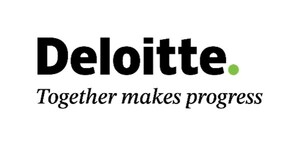
Deloitte: REITs Offer Potential Solution to U.S. Infrastructure Crisis
Recent IRS Private Letter Rulings Have Increased Interest in REITs for Infrastructure Investments
NEW YORK, April 19 /PRNewswire/ -- While raising funds for infrastructure maintenance and development has emerged as a top priority in the United States, there have been few viable solutions offered to date. With public funds clearly insufficient to meet the task, the role of private capital is a solution that poses real potential as private investors seek new avenues to generate tax-efficient returns post-economic downturn. This trend, when coupled with recent IRS private letter rulings allowing real estate investment trusts (REITs) as alternative investment vehicles to traditional partnership structures, points towards infrastructure REITs as a resolution benefiting all parties, according to Deloitte's "REITs and Infrastructure Projects: The Next Investment Frontier?," released today.
"Over the last several years, favorable IRS private letter rulings sanctioning the use of REITs to own electric and gas distribution systems have increased interest in their role in infrastructure investments. Increased access to private capital through public-private partnerships would be a welcome complement to traditional infrastructure financing using tax-exempt bonds, and advantages of using a REIT structure over the traditionally-used fund model may be the right incentive to generate interest, " said Lou Weller, principal, Deloitte Tax LLP.
"Weller continued, "One major advantage REITs offer over partnerships is their ability to raise capital from diverse sources, particularly among foreign investors, which would be especially helpful in the public-private partnerships market where many of the current equity investors and project developers are global corporations that often need complex tax structuring to optimize their participation.".
According to the report, the advantages REITs offer infrastructure investors over the traditional fund model include:
- Liquidity — If publicly traded, REIT stock can be sold through recognized securities channels.
- Incremental scalability — Future capital raised for incremental investments after a project's start-up can be scaled to the size of the projected activities of the investment pool and its advisors through follow-on offerings without the complexity associated with fund structures.
- Capital market access — REITs can access capital markets made up of the entire range of institutional and individual investors.
- Taxation — REITs effectively operate without tax at the entity level as long as they distribute their taxable income annually. REITs can also provide a way to avoid characterization of foreign owners as having a U.S. branch or effectively connected income and, in some cases, no tax is imposed under the Foreign Investment in Real Property Tax Act on the sale of a non-U.S. taxpayer's investment. REIT dividends generally do not constitute unrelated business taxable income and unlike fund owners, REIT shareholders do not have to file tax returns in each state where a REIT owns assets or generates income.
Despite these benefits, there are some disadvantages to using a REIT structure, which could be abated by a series of proposed solutions.
One approach suggested in the report would be to pass legislation creating Infrastructure Investment Trusts, which would eliminate the income test barriers for using REITs by including revenues from public-private partnership infrastructure participation as qualifying income, regardless of whether that includes rent from real property. The proposed legislation would also modify other rules, such as closely-held limitations and asset tests, where a qualifying organization's assets consisted solely of concessions on infrastructure subject to a public-private partnership arrangement.
Another approach would be to adopt a system allowing infrastructure assets to be owned or leased by a Taxable REIT Subsidiary (TRS) without current limitations on the total value of the REIT that can be represented by its TRS entities or current restrictions on rent that a REIT can derive from related parties, including its TRSs. This could potentially allow a fair return on capital to be REIT-eligible as rent or interest paid to the REIT by its TRS.
A copy of the report is available on Deloitte's website at www.deloitte.com/us/InfrastructureREITS or http://j.mp/bN4v5Y.
About Deloitte
As used in this document, "Deloitte" means Deloitte LLP and Deloitte Services LP, a subsidiary of Deloitte LLP. Please see www.deloitte.com/us/about for a detailed description of the legal structure of Deloitte LLP and its subsidiaries.
Contact: |
Elizabeth Fogerty |
Liz Cheek |
|
Public Relations |
Hill & Knowlton |
||
Deloitte |
+1 212 885 0682 |
||
+1 212 436 7179 |
|||
SOURCE Deloitte






Share this article